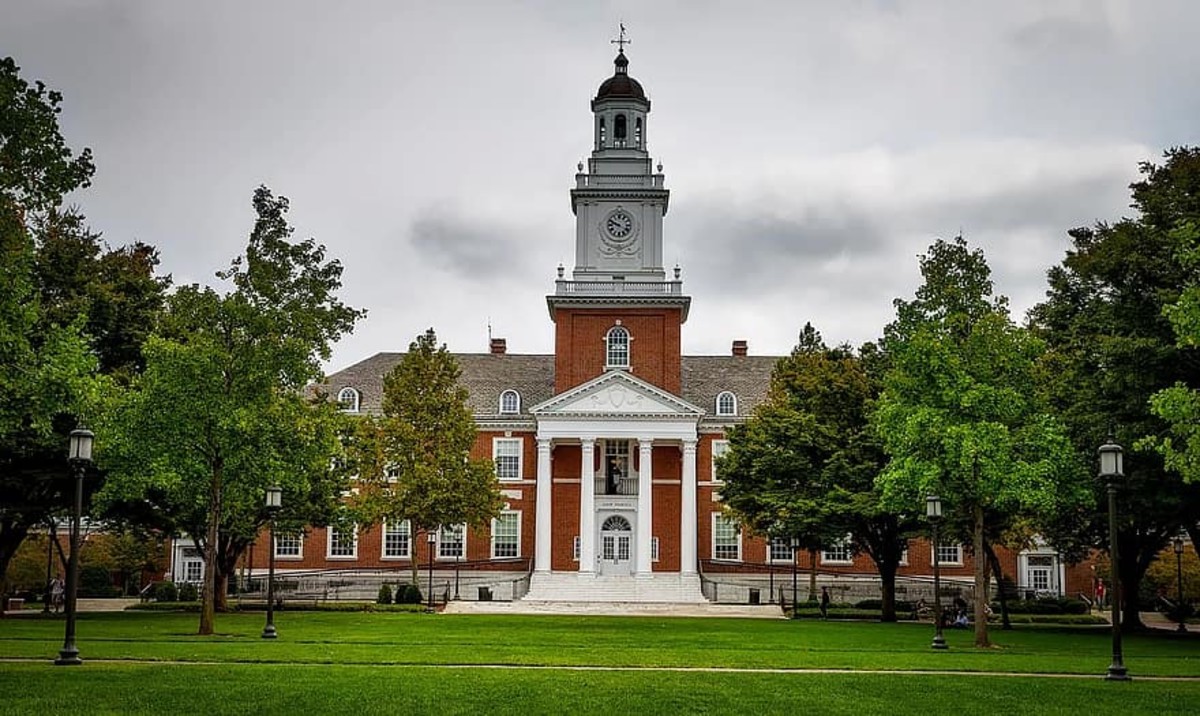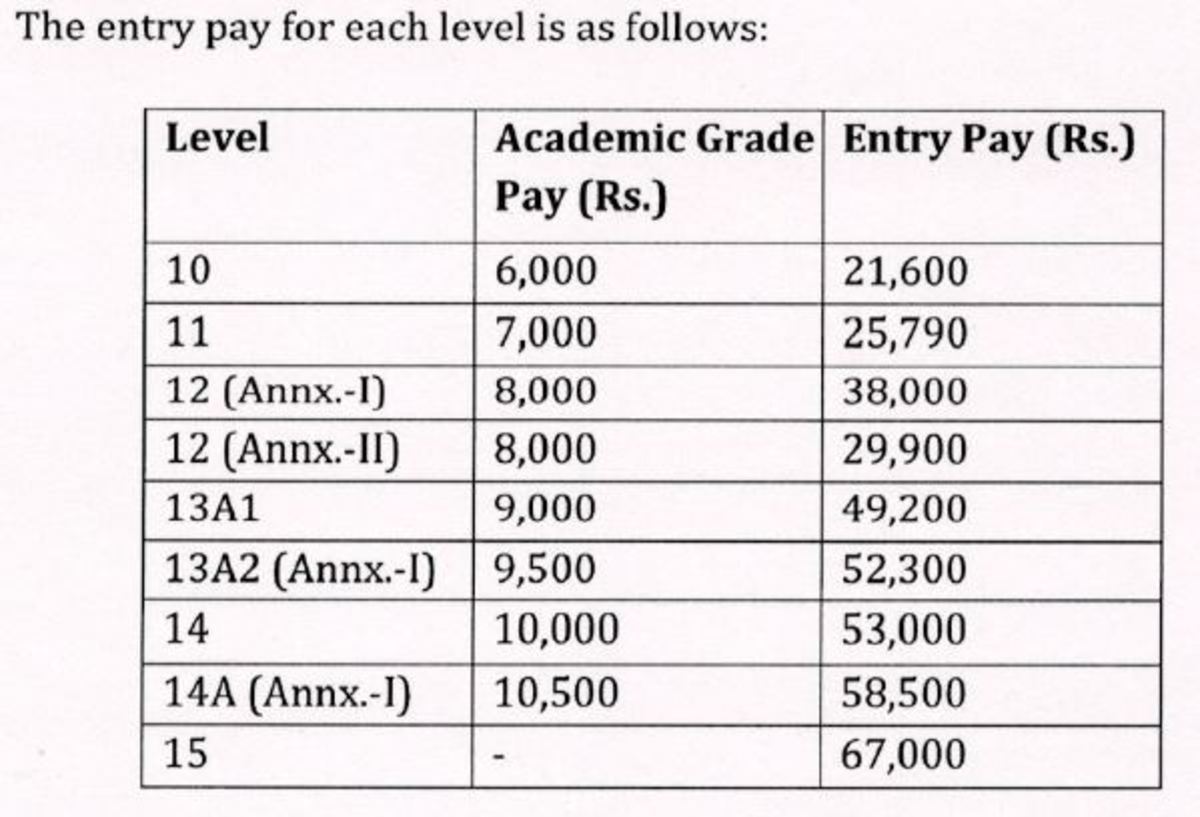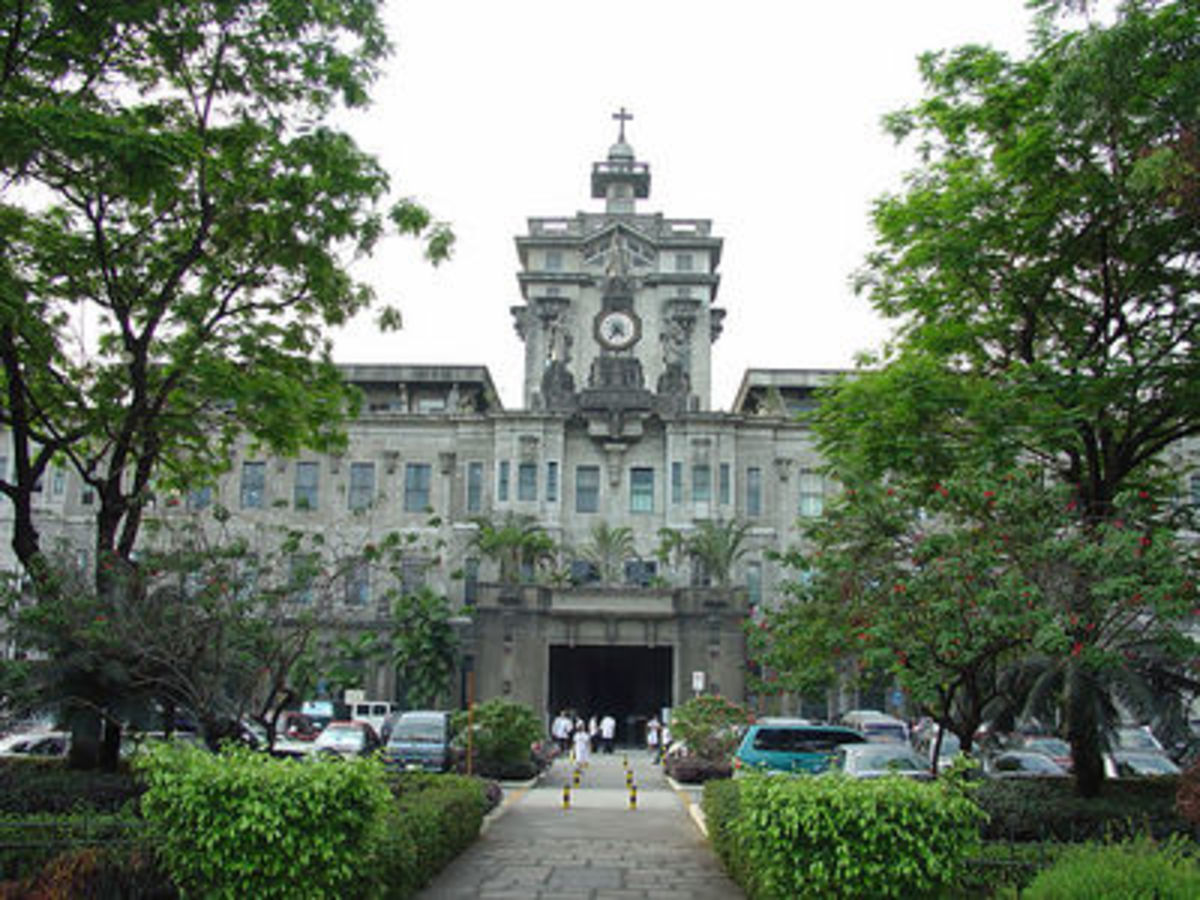University Professors and the Promotion Process

Please Reconsider Academic Tenure
At some Universities and Colleges, but certainly not all, there are parallel processes for earning promotions in "rank" - Adjunct (part time instructor with no benefits), Instructor, Assistant Professor, Associate Professor and Full Professor - and for earning Tenure. Promotions in rank usually come with a salary increase, Tenure usually does not, so why would anyone bother with attempting to earn Tenure?
The benefit of Tenure is that your position with the University, after many years of service and a lengthy and rigorous evaluation process, becomes permanent. Obviously criminal behavior, unresolved addictions, destruction of university property are still cause for terminating a tenured professor. And there is "financial exigency," of course. If a department or major is eliminated from the university as a result of financial difficulties, then a tenured faculty member may be terminated.
What Tenure actually does is protect individual faculty from hasty and negative decisions that might be made by an Administrator on the basis of religion, conflicting political philosophies, race or personality differences. In those circumstances a Tenured professor would have an excellent, and probably winnable, lawsuit against the institution. So just as it is difficult to fire a Tenured Professor, it is very difficult to gain Tenure, which is as it should be.
Please do not confuse the "Tenure System" that many public K-12 teachers participate in with the process utilized on the university level. They are not remotely comparable. I cannot provide you with an inside look at the K-12 system, but I can walk you through a University Promotion and Tenure Process. I have been through the process twice myself as a candidate for promotion and tenure and I have served on over fifteen faculty promotion and tenure (P&T) review committees in the last nine years.

Academic Rank and Tenure - What are They?
At the university where I teach, someone hired with a Master of Arts (M.A.) is assigned the rank of Instructor and given a one year contract, which may or may not be renewed at the discretion of the academic Vice President. A person who already has or earns their Doctorate (Ph.D.) is hired at the rank of Assistant Professor and a one year, three year, or "tenure-track" position is offered based on the projected needs of the institution.
Faculty who seem like a good long term fit for the institution may be offered a tenure-track contract. It will still be reviewed and renewed annually, but there is a long term goal of a permanent relationship. At my university someone with a Ph.D., hired as an Assistant Professor has a five to eight year window in which to apply for promotion to Associate Professor and for Tenure. If he/she does not apply by the end of the eight year, his/her contract is not renewed and the faculty member is terminated.
To apply for P&T the candidate must prepare a Portfolio, consisting of three to five 4-inch ring binders that contain evidence of his/her Teaching, Advising, Committee Service, Community Service, Scholarly Activities, Academic Presentations, and Publications from the past five to eight years, including evaluations from your supervisors, directors, and/or deans.
It is a huge and daunting undertaking and it is understandable that some faculty do not want to go through a process, that could end in their termination. By the way, faculty are actually terminated; I was hired for my first two teaching positions to replace someone who had just been denied Tenure.
If a person does receive tenure, after another five years, they can go through the process again, another Portfolio with even stiffer requirements, to become a Full Professor. In the non-academic world, I guess a similar progression would be Salesman, Manager of Sales, Regional Manager and so on.
Most portfolios are between 1000 and 2000 pages long and contain copies of course syllabi, course assignments, exams, committee minutes, reports, academic proposals, conference papers, publications, evaluation letters, annual assessments and much more. It would be impossible to show you a Portfolio...and you certainly would not want to read one. By changing names, I can show you a promotion and tenure report from a committee which I served on.
There are five stages in the process. A candidate must obtain (1) a letter of support from his/her School Dean, (2) a positive five-member School (Arts and Humanities, Math & Sciences, Education) Committee Report, (3) a positive seven-member University-wide Committee Report, (4) a letter of support from the Academic Vice-President, and (5) a positive letter from the university president after he has reviewed the portfolio binders, letters, and reports.
Once the portfolio binders are turned in, 4-6 months elapse before the candidate knows the outcome. Below is an actual School P&T Report. It will summarize some of the materials contained in a portfolio, and hopefully illustrate what Tenure is based upon and clarify the difficulty of achieving Tenure. I am not aware of any institution that simply awards Tenure on the basis of longevity. When the process works as it is supposed to, Tenure is awarded after many years of dedicated and superior teaching, service, and scholarship.
In the interests of full disclosure, I was hired as an instructor 14 years ago. Three years later I completed my Ph.D. and became an Assistant Professor. Six years later I went through the P&T process and was promoted to Associate Professor and received Tenure. Five years later, another portfolio, and I was promoted to Full Professor. I have served on numerous School-wide P&T review committees and sit on the University-wide P&T review committee, so I write from inside and outside the process, from the bottom to the top.
Below, with names changed (my apologies, "fruit" names were all I could think of late at night), is a complete report on a candidate who successfully applied for promotion and tenure. Seven tenured faculty served on this committee and I was selected to collate all the comments and observations and compose the final report. If you have any questions, I will do my best to answer them and I would certainly appreciate any comments you might have to offer.

Thr Promotion and Tenure Report
Jefferson University Promotion and Tenure Committee:
Report on Application for Promotion to Associate Professor
The University Promotion and Tenure Committee (Professor Apple, Professor Orange, Professor Peach, Professor Cranberry, Professor Pear, Professor Pineapple, Professor Mango), in considering the application of Dr. Cherry Grape, Assistant Professor of Education, for tenure and promotion to associate professor, submitted the following report on November 19, 2010.
Summary Report
The members of the Reinhardt University Promotion and Tenure Committee endorse the application of Dr. Cherry Grape for tenure and promotion to Associate Professor.
Dr. Grape has shown strength in teaching and advising by her regular self-assessment and course revision, her development of educational websites, and her attention to differentiated learning styles. She has been regularly active with professional presentations for the past decade, beginning even before she completed her doctorate in 2003. In addition, Dr. Grape combines teaching and community service in an ongoing service-learning project, Feed My Lambs.
Dr. Grape’s constant self-reevaluation, attention to theoretical issues, and use of technology make her a strong candidate for tenure. In all of her pursuits, including teaching, service, and professional development, Dr. Grape holds herself to the highest standards of excellence. She is an extremely hard worker whose efforts are deeply appreciated by students, colleagues and the community.
Committee Findings
1. Academic Credentials
Cherry Grape has met the standard for academic credentials, having received her Ph.D. degree from Hiawassee State University in 2003.
2. Teaching and Advising
The Committee evaluated Dr. Grape’s Promotion and Tenure Portfolio with respect to the Jefferson University requirements for promotion in rank to Associate Professor. Section V, 4.2.1.2 “Demonstrated effectiveness in teaching, with evidence from SIRS and at least four (4) other sources listed in Appendix E, Evidentiary Sources (Teaching and Advising) and the requirements for Tenure Eligibility, Section V, 5.2 “Teaching and advising skills and experiences that meet the standards for an associate professor at Jefferson University.” (See Section V, 2.1.8.3).
Based upon statements by students who have been in her classes, peer and Dean classroom observation reports, student evaluations, and instructional materials, the University Committee concludes that Dr. Grape is one of the most dedicated and effective teachers and mentors at the University. Her outstanding use of technology as well as her incorporation of differentiated instructional techniques is unparalleled on this campus. Dr. Grape not only teaches “teaching,” but she takes her own practice of teaching seriously. She places her teaching within a conceptual framework in addition to dealing with the nitty-gritty of teaching.
The committee found that the candidate:
1. Incorporates appropriate instructional technology in the classroom
Dr. Grape maintains excellent websites for all courses offered, including “Reading Railways. She creates videos for teaching reading comprehension, and teaches her students to create them as well. See videos below (Removed for Confidentiality)
2. Utilizes several teaching techniques to address multiple intelligences
Dr. Grape includes music, movement, and chanting, in addition to reading and lecturing in her pedagogy. Her teaching philosophy is student-centered and well developed, balancing theory and practice. Her EDU 230 course is all about differentiated learning.
3. Has received letters and notes from students and alumni addressing the candidate’s teaching and advising abilities
Students refer to her passion and dedication for teaching, and her positive effect on them. (See examples below.)
4. Maintains currency in discipline content and instructional delivery.
Dr. Grape added a mid-semester evaluation to help her improve classroom instruction, only part of her excellent and thorough assessment system for use in her courses. Her course syllabi show progression and improvement. Her assignment in EDU 230, in which students do a semester-long inquiry into a particular theorist and connect what they learn to their own teaching, was appreciated.
5. Has worked in close partnership with Hasty Elementary School in order to facilitate student placement.
Excerpts from letters in support of Dr. Grape:
“Dr. Grape was energetic, enthusiastic, and did an excellent job of connecting to the class. [She] used relevant examples, held the class’s attention, treated students with respect, and asked stimulating questions to challenge each student” – Dr. K H, fall 2010
“Modeled a nurturing environment; variety of ways to present information; modeling flexibility; spirited [student] interactions that were supported and encouraged by the instructor. You reflect the nurturing commitment of PSOE extremely well!” – Dr. S B 2006.
“Student advisement is progressing well as your knowledge of the program and associated college and PSOE policy becomes more familiar… You bring a lot of enthusiasm, teaching skill, and creative energy to the PSOE” – Dr. B D 2003
“She’s hands down one of my favorite people. She’s so energetic and so full of life. You want to be around her and you want to learn from her. She’s been a huge mentor to me. [Her class is] very hands on. You dance, you sing. You go all sorts of crazy things to help you remember different things. You’re moving. Its not just sitting there and taking notes and writing papers.” – M C (student).
“To me she is the definition of a master teacher. You can tell that she takes her job as a calling and not just a paycheck. Her hard work in preparing her lesions for her classes really shines when she teaches them to the class… She is deeply compassionate about shaping and molding her students into wonderful teachers. She is not a push over though. Dr. Grape believes in accountability. She feels that if she is putting a lot of work into her lessons then we as her students should put the same amount of work into our course assignments… [But] she would always make time for me and other students. – M D 2006.
3. Service to University and Community
We evaluated Dr. Grape’s Promotion and Tenure Portfolio with respect to the Jefferson University requirements for promotion in rank to Associate Professor. Section V, 4.2.1.2 “Significant contributions in service with evidence from at least four (4) sources listed in Appendix E, Evidentiary Sources (Service to University and Community) and the requirements for Tenure Eligibility, Section V, 5.2, “University and community service activities that meet the standards for an associate professor at Jefferson University.” (See Section V, 2.1.8.3) The committee found that the candidate:
1. Developed successful service programs or projects for a local, regional, national, or international College, Church, or Community organization
Dr. Grape’s ongoing work with Feed My Lambs, a childcare center, was very impressive, even more so because the activity is incorporated into her own pedagogy. This ongoing project involves the Dr. Grape and her students with service learning.
2. Served as a leader of the Faculty Development Committee
Dr. Grape took this “invisible” committee and made it visible through her enthusiastic publicity efforts. In addition, this committee was charged with developing guidelines for the Vulcan Award nominations. Dr. Grape and the committee researched various other colleges and developed a proposal that was successfully passed by the Faculty Senate.
3. Served as leader of the Learning Environment and Campus Life Committee
Dr. Grape’s efforts here were also appreciated. Her creation of videos on student time and life management have been broadcast on JUTV.
4. Leads and/or participates in PSOE committees
Dr. Grape has served faithfully on the many committees of the Patterson School of Education (PSOE). Unlike other Schools at Jefferson University, the PSOE has a number of School committees, with an additional service load for its faculty. Moreover, it has regular accreditation visits for existing and new programs. All of these projects require time and energy. In addition to campus-wide efforts, Dr. Grape serves on the following PSOE committees:
• Dispositions Protocol
• PSOE Alumni Association Board
• Recruitment and Retention
• Technology/Live Text
• Banner
• Instructional Resource Center
• (Like all PSOE faculty) played role in GAPSC accreditation visit
5. Currently serves as the PSOE representative on the Faculty Executive Council.
In addition to her regular Faculty Executive Council duties and responsibilities, Dr. Grape invested substantial time, summer and fall of the 2010 academic year, meeting with the recently developed University Collaborative Group. This group composed of administrators, faculty representatives, and staff addresses initiatives which require collaboration between the various areas of the university. Dr. Grape also headed up a sub-committee that developed a report for the larger body.
6. Dr. Grape has served on numerous time-consuming faculty, staff, and administrative search committees.
7. Dr. Grape regularly participated in Scholarship Days and Freshmen Orientation service days.
Excerpts from letters in support of Dr. Cherry Grape:
“Dear Cherry… on behalf of the English Department, I want to thank you so much for participating in our search for two new English faculty members… You participated in dozens of meetings and interviews… This was a huge search. We read through ninety applications, did thirteen phone interviews, and conducted six on-campus interviews…. Your insights were invaluable. You were both extremely professional and a congenial and generous colleague…. As a faculty member from another discipline, you went above and beyond the call of duty in helping us with this search.” – Dr. D C 2007.
“On behalf of the Cherokee County School District, I would like to personally thank you for your participation in the 2004 Middle School Career Fair! … This event… proved to be a success due in large part to the generous contribution of your time to our middle school students – Dr. F P, 2004.
“Your initial work in this area also carries a great deal of potential for the future. You have established beginning collaborative reading projects with the area teachers at Mountain Road elementary and R.M. Moore” – Dr. B D 2003.
“Your work as secretary of the College Curriculum Committee has been done in a timely and efficient manner. The same holds true for your chairing the PSOE Cultural and Environmental Standing Committee as the product of your work as seen throughout the PSOE and does much to add to the caring commitments of our faculty.” Dr. B D 2003.
“Thank you for your contribution to advising students at the June 2007 New Student Orientation. Since faculty members are not under contract during the summer months, voluntary attendance at these sessions is greatly appreciated.” – Dr. T R .
4. Professional Growth and Development (Scholarship, Publications, Presentations)
We evaluated Dr. Grape’s Promotion and Tenure Portfolio with respect to the Jefferson University requirements for promotion in rank to Associate Professor. Section V, 4.2.1.2 “Significant contributions to the candidate’s discipline and demonstrated professional effectiveness, with evidence from at least four (4) sources listed in Appendix E, Evidentiary Sources (Professional Growth and Development) and the requirements for Tenure Eligibility, Section V, 5.2 “Professional growth and development achievements that meet the standards for an associate professor at Jefferson University.” (See Section V, 2.1.8.3).
Dr. Grape’s engagement with emerging theories about literacy and the teaching of reading is obvious in her course materials, her conference presentations, and the manuscripts she has prepared for her grant application to the Institute of Education Science in 2009 and for submission to the Journal of Adolescent and Adult Literacy. Dr. Grape’s extensive work for the grant proposal to the Institute of Education Science, even though it failed to receive funding at that time, can, as Dr. Grape indicates in her portfolio, be used for future grant applications. Dr. Grape is one of the few faculty members at Jefferson who have even attempted to write a grant proposal, and she should be commended for her efforts.
Dr. Grape has integrated her research into her classroom teaching to an impressive extent. Her research feeds her classroom practice, and her classroom practice feeds her research. This integrated cycle of research and pedagogy embodies the ideal of the Research of Teaching and Learning as Dr. Charles Glassick has described it.
The committee found that the candidate:
1. Presented a conference paper at the annual meeting of the Georgia Association of Teacher Educators in 2010: “Reading about Teaching Reading: Helping Pre-service Teachers Develop Critical Thinking and Reading Skills”
2. Presented at the Southeast IRA regional conference in 2009: “Understanding it My Way: Using Multiple Intelligences to Teach Comprehension Strategies”
3. Chaired a session in 2007 at the National Reading Conference.
4. Presented with S. Brown and B. Black at the Georgia Association of Teacher Educators in 2006: “Showing Students How to Dance (Modeling Differentiation)
5. Presented a paper in 2000: “We Matter! Adolescent Readers Favorite Kinds of Books” at the National Council of Teachers of English
5. Commitment to the Mission, Values, Identity of Reinhardt University
Jefferson University's Mission Statement affirms numerous convictions about students and the faculty member's relationship with those students, including the following: “the University affirms that learning is best facilitated through a partnership between faculty members and students where the integration of faith and learning is essential”; the University provides a “small, caring community dedicated to personalized attention”; and the University “seeks to educate the whole person by developing the intellectual, social, personal, vocational, spiritual/moral and physical dimensions of its students.” Although not restricted to these statements, the committee has used these convictions to assess Dr. Grape.
From Dr. Grape’s portfolio:
“[In my first year] I sat in the dining hall and got the feeling that Jefferson might just be the place I say goodbye to when I retire. This place called me. I came here not for a job, but to find another part of my life. When I looked around at my new surroundings, I was invested in making my mark and helping to create an environment that would be welcoming and nurturing. I wanted to help our college grow and become a newer and better version of itself.”
The committee certainly agrees that this statement indicates support of Jefferson University’s mission. It is matched by Dr. Grape’s tireless and caring work with students, with Feed My Lambs, and with her committee work with the Faculty Development Committee, the Learning Environment Committee, and the PSOE. This committee finds that Dr. Grape is dedicated to Jefferson University and supports and furthers its mission on many different levels, from her intensive work with individual students to her work on a wide variety of committees which support both the Patterson School of Education and the larger university community.
6. Suggestions for Future Development
The committee was pleased to see that Dr. Grape had submitted an article for publication and hopes that it is accepted. For future promotion, the committee encourages Dr. Grape to continue pursuing opportunities for research, presentation, and publication to strengthen this part of her portfolio.
It would be helpful for a future promotion report if the candidate would specifically designate the evidence from SIRS reports that she would like the committee to consider.
University Committee Recommendation
The University Promotion and Tenure Committee recommends that Dr. Cherry Grape be granted Tenure and promotion to Associate Professor based on our analysis of the candidate’s portfolio and accomplishments relative to Teaching and Advising; Service to University and Community; and Professional Growth and Development.
Signed and dated:
_____________________________________________
______________________________________________
______________________________________________
_______________________________________________
______________________________________________
_______________________________________________
_______________________________________________

Books You MIght Be interested In Reading










